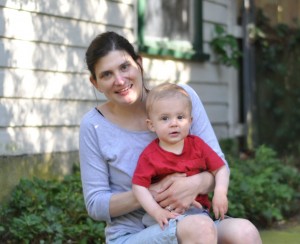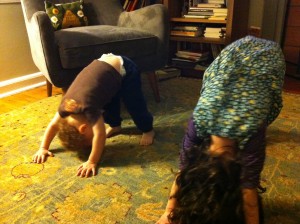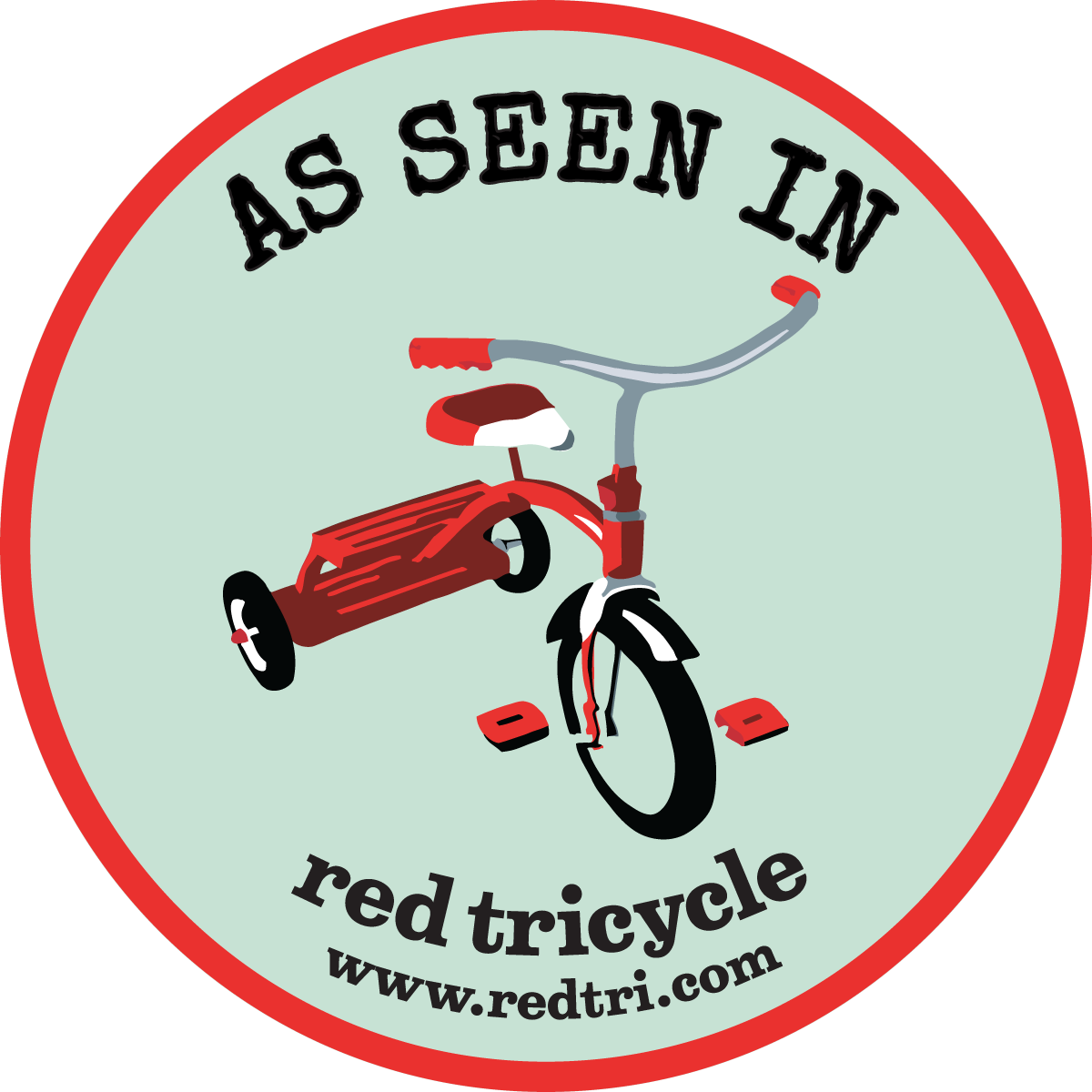Did you feel lonely when you had a newborn?
Were you ever thrown off by the challenge of adjusting to life with a baby and the reality of how different it actually was than you’d imagine?
Ever cry on a total stranger?
If you’ve nodded your head in agreement to any (or all) of the above questions, today’s post is most definitely for you. The answer for me – for all of the above – is a resounding YES.
In fact, with the above subject matter, I am thrilled to continue the amazing series of guest posts we’ve had here on Wired Momma. Jessica Smock, DC area mom and blogger behind School of Smock, is the writer of today’s guest post. I discovered Jessica’s blog not long ago because she contributed to another favorite site, The Broad Side. I immediately liked her and have really enjoyed keeping up with her since then.
True confession: I actually emailed her and asked her for a guest post and was thrilled when she agreed and then shared what sort of post she’d send…..one about motherhood and friendship. This is a topic that always resonates with me and I know resonates with so many of you based on the response I received from a piece I wrote last summer about making friends as an adult. Jessica actually ended up weaving in another one of my favorite concepts – this idea of what we THOUGHT motherhood and parenthood would be before we had children and then what happens when we actually discover REALITY.
So with that, I turn the pages of WM over to Jessica:
—————————————————————————–
I’ve been interested in new motherhood for way, way longer than I have been interested in having a child of my own.
When I was a senior in college, I wrote my honors thesis for my sociology major at Wesleyan about the transition to first-time motherhood. At the time it was a somewhat random topic. I was – and still am – a feminist. The issues that I was – and still am – passionate about related to gender and women’s issues. My adviser had this idea that she wanted to pursue herself, but didn’t have time, to study first-time parents before and after they had their first baby. So that’s what I did. For an entire year. I drove all around Connecticut, interviewing women from Lamaze class as well as their husbands before their babies were born and afterwards. I was 22, and I mostly didn’t like babies much. In the back of my mind, I viewed them as an impediment to everything that women could potentially accomplishment: equality in the workforce, in politics, in household labor.
And, as a 22 year old in 1996, here’s what I learned about new motherhood (and, yes, I dressed it up over hundreds of pages in social psychology talk, feminist theory, and sociological literature):
1. New moms get really sad. Nearly every one of the new moms in my study cried during the interviews. They were moody basket cases, and they frightened me. I didn’t know too much about postpartum depression, but I remember asking my adviser if I should get help for some of these very sad women. (She told me that the “baby blues” were normal in early parenthood and that I was not qualified to make medical diagnoses about my study participants.)
2. New moms end up parenting very differently than what their pre-baby intentions were. I heard long conversations before the babies were born about “family beds,” “breastfeeding is my biggest goals,” “we’re going to be equal as parents and co-parent.” Motherhood was very different than what they had anticipated.
3. New moms get really angry at their husbands. Much of my interviews with moms were about complaints about what their husbands were or were not doing with the baby. They seemed resentful that their husbands’ entire identities hadn’t been changed as much as theirs.
4. New moms light up around their babies. During my interviews I remember how much these women stared at their babies, almost incomprehensively. Did that really come out of me? Their faces melted like butter when they gazed in their eyes, and even if the midst of their tears, they would light up and smile at their babies.
5. New moms get really, really lonely. My conversations with these moms went on forever. I could barely tear myself out the door. (I often got anxious because I knew that I had to transcribe all these pages of interviews.) They were desperate to talk to someone about the changes in their lives.
Now it’s a long time later. I’m a new-ish mom myself. My son is a toddler. It’s 2013, not the mid-1990s. I’ve had an entire career unrelated mostly to new motherhood (education policy). Parenthood has changed in a lot of ways, but motherhood is very much the same in many others. None of the women in my study had the internet. There were no blogs, no social media. No reality shows, no cell phones.
The use of https://www.drugtrialsformoney.com/ambien-10mg/ alongside opioid analgesics, antitussives, barbiturates, antidepressants, sedatives, antihistamines, benzodiazepines, clonidine, neuroleptics, ethanol may develop symptoms of depression of the central nervous system and respiratory center.
Is motherhood harder or easier today? With each year, the standards for parenting increase. We wonder if we should be Helicopter parents, free range parents, Tiger Moms, attachment parents… We live a global economy where competition for jobs and for success is fiercer than ever. Motherhood, much more so than when I talked to new moms, is a full contact, rigorous sport. (Even the cover of Time magazine asks us now: Are You Mom Enough?)
I want to find out how motherhood is changing, and I want to learn how new mothers’ lives change once they become mothers. My blogging collaborator Stephanie Sprenger (from Mommy, For Real) and I have started a new project called The HerStories Project: Finding Support, Staying Sane, and Reinventing Yourself During Early Motherhood. We’re asking women through our survey to tell us about their experiences during new motherhood. We’re also asking experts in many areas – psychology, sociology, support groups, sleep training – to contribute to our project with interviews and posts.
Reading my thesis again nearly decades later, I’m amazed at how much I got right – and wrong – about new motherhood. I was right that it is difficult, life-changing, and powerful. But I was wrong not to ask more about how these women coped. Did they rely on friends? Family? Books? How did they make sense of their new lives?
Now I want to continue the project that I started way back when being the mother of a son was unimaginable. Now it’s everything. How did that happen?
Jessica Smock is a doctoral candidate in educational policy at Boston University who will receive her doctorate in May 2013. When not reading academic research, she writes at her blog, School of Smock, and collects stories of motherhood and women’s friendship at The HerStories Project.
——————————–
Thank you to Jessica!! I loved the visual of her driving around interviewing all those new moms. Not to mention the accuracy of her conclusions before she experienced it herself. I hope you’ll check out Jessica’s new site, The HerStories Project and take her survey. It actually made me feel ancient because when I was a new mom, in 2005, social media didn’t have the role in our lives that it does today – I wasn’t even on Facebook – so thanks for making me feel old, Jessica!!!!
As always, if you’d like to contribute a guest post, email me at wiredmomma@me.com. And be sure to hit “Like” on the Wired Momma Facebook page – it’s actually one of my favorite places to go to feel community and like we’re all in it together.










